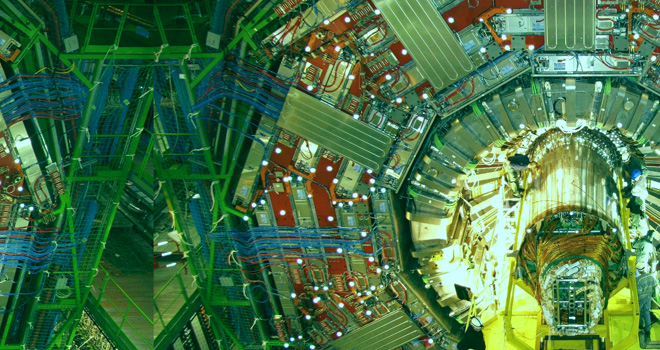By William New
If the free software movement is defined by its American founder as “free as in free speech, not as in free beer,” perhaps the newly-emerged Open Hardware License created by a high-level research laboratory on the border of Switzerland and France could be conceptualized as: “not as in free champagne.”
What remains is to see the degree of take-up from the private sector.
The Open Hardware License was published by the European Organization for Nuclear Research — CERN by its French acronym — the world’s leading laboratory for particle physics, birthplace of the World Wide Web and best known lately for its Large Hadron Collider.
CERN officials say the license, which provides “a legal framework to facilitate knowledge exchange across the electronic design community,” reflects the spirit of open source software and Creative Commons licensing.
CERN retains the copyright over hardware design and welcomes unmodified use of the license for distribution of open hardware designs.
Some, like Alessandro Rubini, Free Software developer and co-author of “Linux Device Drivers”, say the license has “the potential of being the lead license for new hardware projects, like the GNU Public License has been for free software.”
The move also was welcomed by the Free Software Foundation Europe.
“We didn’t write the CERN OHL with the perspective of developing the next GPL for hardware,” Myriam Ayass, legal advisor, CERN Knowledge Transfer Group, said in an interview. “What we were doing is drafting a license with a specific use in the Open Hardware Repository.”
The Open Hardware Repository, founded by Javier Serrano, an engineer at CERN’s Beams Department, encourages knowledge exchange under the open science principle.
The Open Hardware License version 1.0 was published in March, and version 1.1 July 7.
Open hardware shares the same principles of free or open source software, according to Ayass: “Anyone should be able to see the source (the design documentation in case of hardware), study it, modify it and share it.”
Ayass said the open hardware movement is “moving very quickly” and that there is not a license that addresses “the whole set of questions.”
For instance, there is one that makes designs available but is not really open, and another that focuses on patents and immunity from suit – essentially an agreement not to sue each other, she said.
The Open Hardware License is “as radical as open source is for software,” she said. “I guess it was just a matter of time before it reached the hardware movement.”
The next step will be to gather feedback on this version of the license, and possibly work on its subsequent iteration.
The new license relies on the intellectual property system, said Ayass, but the perspective is that “IP is not only for hiding stuff from others, but also for sharing stuff with others.”
A workshop on open hardware is being planned by Serrano on October 9th during the 13th International Conference on Accelerator and Large Experimental Physics Control Systems in Grenoble, France, and some companies may participate to share their views on it.
Companies with large projects may see the value in not working on them “in a vacuum,” Ayass said. Open hardware follows the philosophy of open software and open content, but is different in that it involves “something that has to be made” that requires resources.
The model is expected to resemble open source software in the sense that companies sell services that go with the hardware. Companies will compete to distinguish themselves, which is what CERN expects to see in the coming months.
For CERN, the open hardware license has advantages too, though it is not expected make money off of the idea. For Ayass and the knowledge transfer unit, “our aim is to have our technologies disseminated as widely as possible, used by as many people as possible.”
The point at this stage, said Ayass, is “to see how it will work, to see how much companies will play the game.”
William New is Editor-in-Chief of Intellectual Property Watch, based in Geneva, Switzerland. He’s also a visiting fellow at the Yale Law School Information Society Project.
Have a story idea or tip for Idea Lab? Please send them to: idealab@talkingpointsmemo.com









